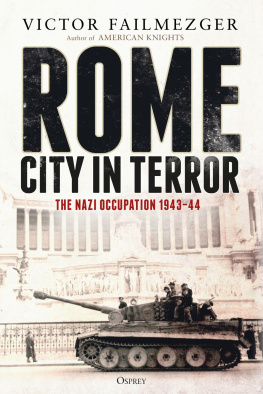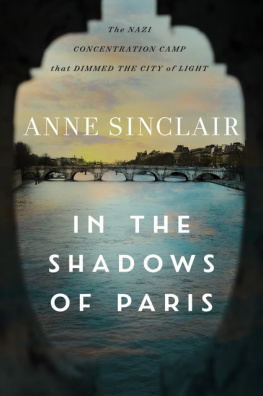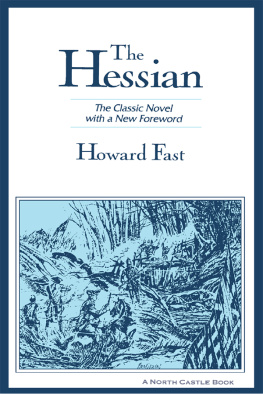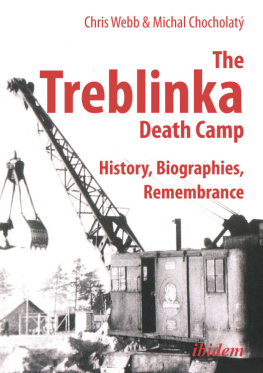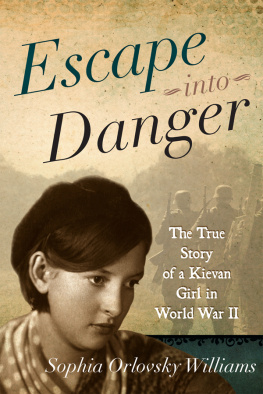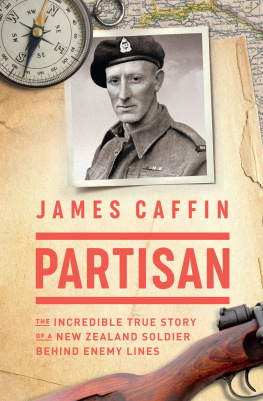THE RIDDLE OF BABI YAR
By Ziama Trubakov
NEW SPECIAL EDITION
Edited; translated; expanded and illustrated
By Reyzl Yitkin

Ziama Trubakov
1912-1998
AUTHORS INTRODUCTION
It is so very hard to recollect all the horrors that my comrades and I went through during the war and occupation of Kiev. Skeptics and unconcerned people shouldnt say: Time heals everything, and memories cannot upset a person half a century later
While working on the text of this book I relived again and again all the hardships, the feelings of fear, hunger, and despair. Every minute, every hour, and every day of those terrifying years cut deep into my memory and have tormented my soul ever since. I put my memories in writing and my heart is bleeding, my hand is trembling, and I cannot go on
Fortunately, after the liberation I began to write down the events and the names of people while they were fresh in my memory, and so later I could incorporate them into the plot of my book. To a large degree I was inspired by the writer Anatoly Kuznetsov whom I met many times and whose talented book Babi Yar vividly depicts many events of those terrible years. I started thinking of my own book translated into many languages so that my message of what had transpired in Kiev during the Great Patriotic War could be carried to people in other countries.
Alas! My earnest desire was met by a thick wall of indifference. The numerous Ukrainian publishers that I approached couldnt have cared less about Babi Yar and the Jews who perished there. Once I thought I was lucky: Rainbow Magazine accepted my manuscript! However, they sent it back sometime later, explaining it away by the overload of the publishers portfolio
All my attempts to publish the book would have very likely come to naught if I hadnt become an Israeli. Here, in Israel, I returned to this disturbing and painful topic.
I think my account is useful first of all to those who either have never known (luckily for them!), or, after all these years, have forgotten about the horrors of the Nazi regime, the occupation, the merciless persecution and the destruction of Jews.
I was writing this book with an only goal in my mind to deliver to people my greatest request:
It cannot be allowed that this atrocious human tragedy is ever repeated on this earth!
In order to publish my book (in Russian) in Israel, I first of all asked for help the President of the State, Mr. Ezer Weitzman. He responded positively, and I am infinitely grateful to him for this. After that, Mr. Meir Nitzan, the mayor of Rishon le-Tzion, also promised me his support, and I hope that with the assistance of both of them, my book is going to be translated into Hebrew. This is my hearts desire that all Israelis speaking Hebrew and other languages know the details of the tragedy of the Jews in Babi Yar.
Ziama Trubakov
April 1997,
Rishon le-Tzion, ISRAEL
TRANSLATORS INTRODUCTION
I was born and grew up in Kiev, in the area very near Babi Yar, the place of a great tragedy and great sadness. Back then, when I was growing up, it wasnt customary to discuss the calamity of Babi Yar. When relatives of the victims were asked about what happened to their dear ones, the usual answer would be: Babi Yar! These two words would explain everything; there was no need to elaborate.
Luckily, my closest family was spared. My mother and my grandparents didnt live in Kiev when the war broke. However, my aunt did. She was only 5 years old in 1941. The factory where her father worked was evacuated to Siberia during the summer of 1941, so he had to obey the order and carry out his duties. Naturally, his wife and daughter accompanied him. With a lot of regret they packed some of their belongings and left their beautiful apartment in Tarasovskaya Street, a very Jewish neighborhood at that time. Little did they know that very soon many of their neighbors, friends, and her great-uncles family would walk across the city towards Babi Yar never to return! My dear aunt, with whom I was very close and who taught me many good things, would have perished there with all others, if it hadnt been for a lucky turn of fate. When I think about the events of those days, I picture my aunt in her fathers arms, taking that final walk. She would have become one of those children in whose memory a monument was erected in Babi Yar, and I would have been deprived of the happiness of knowing her and being with her.
So, in the light of all the above, the events of Babi Yar have always been a fact to me, a given that I would consider unthinkable to be questioned. That is why, when I first heard a denial of this tragedy, my reaction was not even a surprise but a complete non-understanding; I simply couldnt grasp how anyone could deny the obvious. I started to read and study everything I could find about the Holocaust and about Babi Yar in particular. This is how I came across The Riddle of Babi Yar by Ziama Trubakov.
True, there is a wealth of material about Babi Yar written by people from all walks of life: survivors, historians, and professional writers. However, Trubakovs book stands out. Why?
First of all, many documentaries are either too schematic or too scholarly, or both, and therefore are too specialized while we need more accounts that can get through to people of all educational backgrounds.
Secondly, many professional writers are non-Jews, the fact that of course does not diminish the value of their books, but sometimes we need to look at those events from a Jewish perspective.
The book by Ziama Trubakov combines the best of both worlds: a lively documentary narrative about the tragic years in human history seen through the eyes of a Jew.
And he wasnt even a professional writer! He simply wrote from his heart about what he saw and what he endured. Many of the scenes he describes are truly heartbreaking, even though he doesnt resort to any emotionally charged or sentimental vocabulary. Overall, its a haunting story that, once read, will stay in the readers mind and make him re-evaluate the world around him.
It is remarkable how fair and insightful Trubakov is when he talks about the enemy. He doesnt hesitate to admit that there are Nazi officers and local Ukrainian policemen who didnt lose their humanity and conscience; some of them helped him in the situations when they had the power and the opportunity to simply destroy him.
This is a very special book written by a very special man. Despite all the hardships, all the humiliations and beatings he preserved his human dignity and his compassion to others, even to those who betrayed him.
Trubakovs story teaches us not to surrender to those who aim to destroy us.
There were victims of the Holocaust, millions of victims. We remember them and we mourn them. But why do we forget about the heroes of the Holocaust, about those who fought for their lives and did everything to save the lives of others? Trubakov and his comrades are the unsung heroes of the Holocaust, the role models and the inspiration for all of us.
I didnt have the honor to meet this man. When I had read The Riddle of Babi Yar, my first thought was to go to Israel, to thank him for his book and talk to him to learn more. And then I found out that he had died sometime ago (in 1998). I felt as if I had lost someone very close to me.
Z iama Trubakovs dream has come true: The Riddle of Babi Yar has been published in Russian; it has been translated into Hebrew by Immanuel Bihovsky and published in Jerusalem in 2003 as Ha-Sod Shel Babi Yar. Now I am fulfilling the last part of his wish: I have translated his book from Russian into English. Since English is the most widespread language nowadays, it was imperative to do this translation in order to broadcast Trubakovs message in the language understood by the majority of mankind.
Next page

